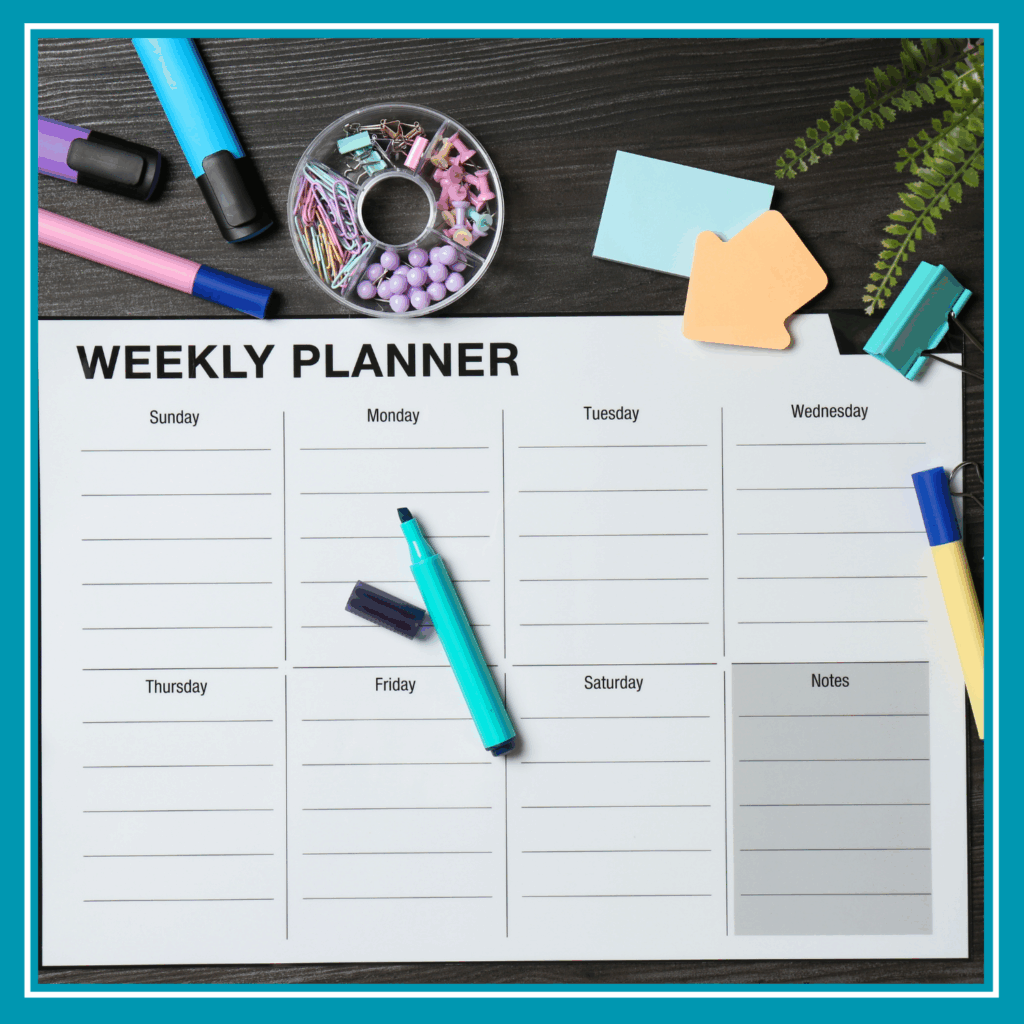Joey & Carla Link
August 13, 2025

Many of you know we are big on putting babies on a eat/wake/sleep routine. They eat better, sleep better and longer and are happy when they are awake. Routine isn’t only for babies. All kids, including teens do better on a routine. They eat better, sleep better and are happy when they are awake too. If they are not on a routine, they are left to themselves to wander around, moving from thing to thing, forgetting to do the things they need to do and provoke their siblings and you until you want to scream and banish them to their room for the rest of the year.
When your kids aren’t on a routine, you have to do their thinking for them, reminding them throughout the day of the things they have to get done. When you have more than one child, remembering this for everyone gets tiresome and often confusing. When you ask your kids if they have done what you reminded them to do, and find out they haven’t, you start lecturing them. Reminders and lectures. There are better ways to spend your time.
When kids and teens are on a routine, the routine does the reminding for you. Routines aren’t minute by minute, structured, rigid and inflexible order to one’s day. Routines are a consistent and predictable flow to one’s day.
How do you help your teens get a routine to their day? To some degree, they are already on one. Do they eat breakfast, lunch and dinner at the same time-frame every day? Are there things you have instilled in them they have to do before they eat breakfast, like get ready for school, make their beds and put their pj’s away? We had a rule in our home that homework had to be done before dinner. When your teens first get their phone it’s smart to have a scheduled time they are allowed to be on it & social media, helping them set good boundaries with it. We know a lot of parents who have a central location for phones, ipads, etc. and their teens need to put theirs in before they go to bed to reduce that huge temptation to be on them when they are in bed.
You will want to start working with your teens to bring order to their fall schedule before they get caught up in all the fall activities, making sure to save time for homework/schoolwork. We started everyone’s fall schedules a week before school started.
1. For kids 11 and up, show them how to work on scheduling a routine that includes all things, including free time they will have from the time they wake in the morning until the time they go to bed. There is a lot less tension in the morning when all your older kids know what times their siblings will be in the bathroom and for how long.
2. Have your pre-teens and teens list on paper all the daily, weekly, monthly responsibilities they have. Have them put next to each item listed how many hours a day/week/month it will take. They really have no idea how much time they need to get ready or on average get their homework done. Have them time themselves for the next 3 days on everything they normally need to do, including practicing getting ready in the morning and so on. I would set a time to meet with each of your pre-teens/teens individually to work again on a routine after Day 3.
3. Have them list other activities they would like to be involved in. Babysitting once a week, getting a part-time job or going to football practice every day after school are some examples. If they take music lessons have them add in their practice time.
4. You and your spouse need to work on a list too. Your list needs to be a blend of all your pre-teen/teen’s lists. This is extremely helpful if they can not come to agreement on who has time where and when for things like showering, getting ready, etc.
5. Compare your list with theirs and merge them together. Keep asking them questions so they see what they need to make time for rather than you telling them. This will teach them time-management skills.
6. Always have “non-negotiable” events blocked out on the family monthly calendar. One of ours was church. They all worked, but not on Sunday morning. Family Nights were non-negotiables. If you have been doing them every week and have a house full of teens, you might try every other week and see if that works better for everyone if needed.
7. Have them try out the routine they come up with for a week. They will stick to it if it is their own idea. If it doesn’t work, then sit down with them the next week or mid-week and figure out how to fix the problem areas. If more than one sibling is involved and they can’t come to agreement on areas their routines overlap, act as their mediator.
8. If there is a chronic offender among the siblings, you need to take him/her aside and deal with it. One of our daughters was always late getting out of the bathroom in the morning so the others were always running late. This was our problem to deal with, not her siblings.
You will want to get each person’s routine to blend with all the others in the family. In the Mom’s Notes “Structuring Your Child’s Day, Part 2”, at the end we show you how to blend the routines of 4 kids in one family into a seamless rhythm.
Writing down all the activities your kids have going on will show them where their time goes, where it needs to go and how to fit everything in and say “no” to what won’t.
When our kids were teens, they were making their homeschool schedules by the semester, because I had been working with them to do this since they were in grade 6, or around 11 yrs. old. They had weekly lesson plans written out and each Monday they would pull that week’s plan out of their notebook, update it with any changes and put it on their bulletin board over their desks. Included on that weekly calendar were all other activities they had in addition to school including free time.
This took a huge load off me and as we said before, they are much more likely to stick with something they come up with themselves. They had seen the advantage of working in their hardest subjects first when they were sharper and more alert. All had a study hall at the end of their school day. They almost always got their homework done during this time.
Being on a routine throughout their growing up years will help your teens manage their time when they are on their own.
What time management skills do you think your teens should learn?
“But all things should be done decently and in order.”
1 Corinthians 14:40
Have you listened to these Mom’s Notes presentations?
We have two Mom’s Notes on routine & structure that have been very popular over the years.
“Structuring Your Day, Part 1” – To structure one’s day or time is to provide a routine for family living. Part 1 discusses the four areas in every moms life that need to have routine. Ideas for managing the home and chores are given.
“Structuring Your Day, Part 2” – This part looks at ways to add routine to your children’s day which will help develop their character as well. This series deals with kids of all ages. At the end of Part 2, I (Carla) show how to blend the individual routines of 4 kids and mom.
Parenting Made Practical Podcasts
#17 “Every Parent’s Biggest Struggle – Consistency”
Most parents would agree that being consistent when dealing with their kids bad behavior and attitude is probably their biggest struggle. Unfortunately, kids won’t grow and mature in the way you want them to until you are consistent when working with them. In this podcast, we share 3 primary reasons most parents are inconsistent and ways to overcome them.
#26 “Respecting siblings” Respecting a sibling is one thing, but treating them with respect is another. Learn how to deal with disrespectful siblings so they can get along when you are not watching. If you homeschool, this podcast will help you work with your kids to love their siblings as they love themselves, which will make your days a lot more pleasant.
